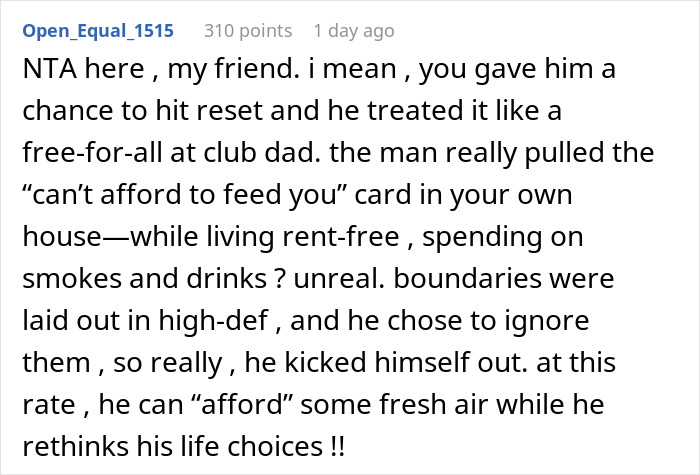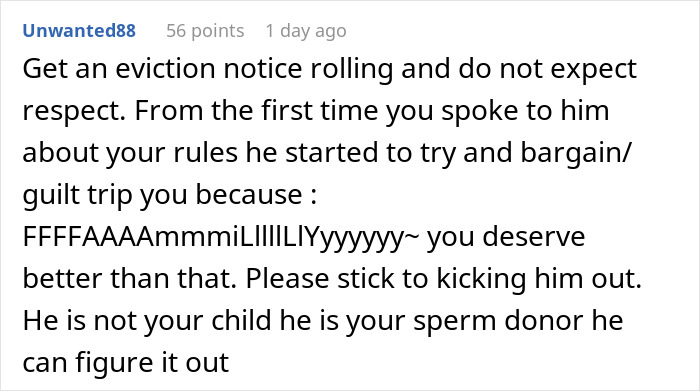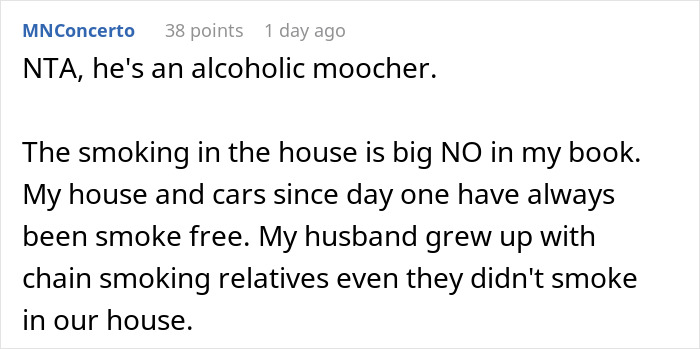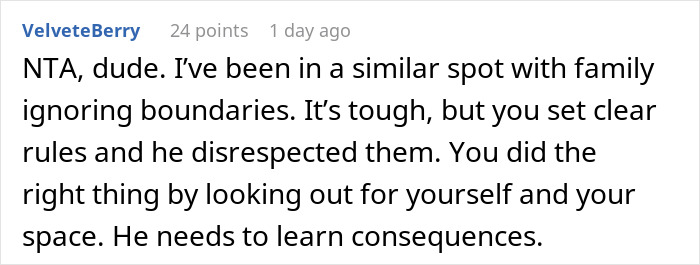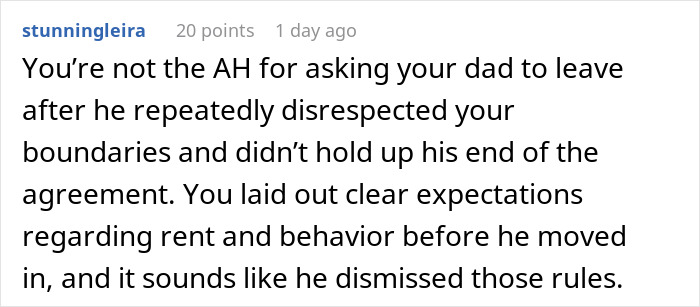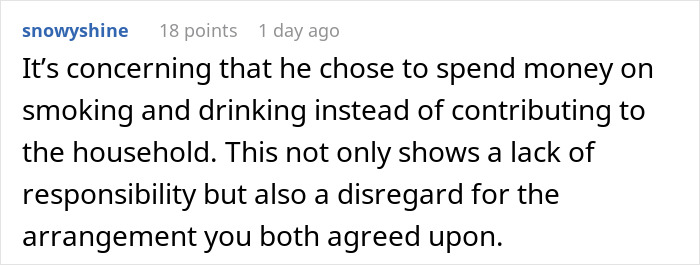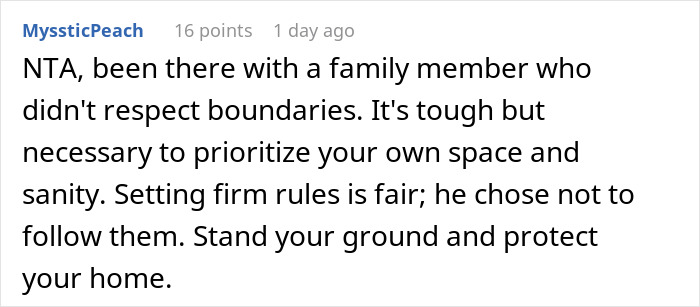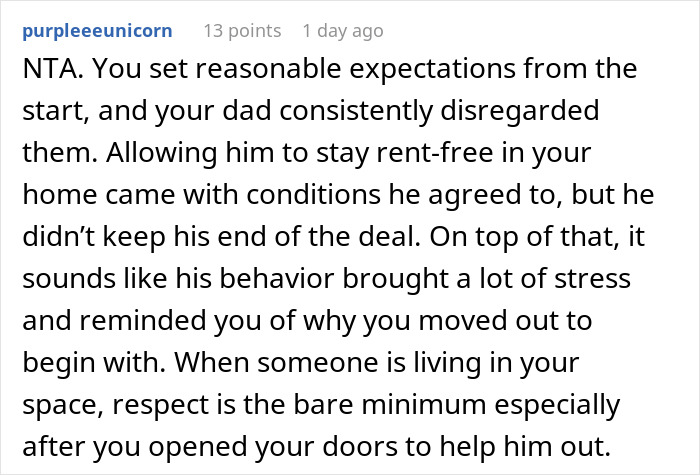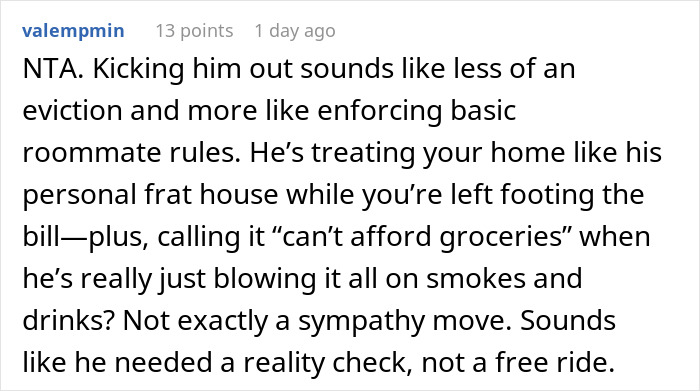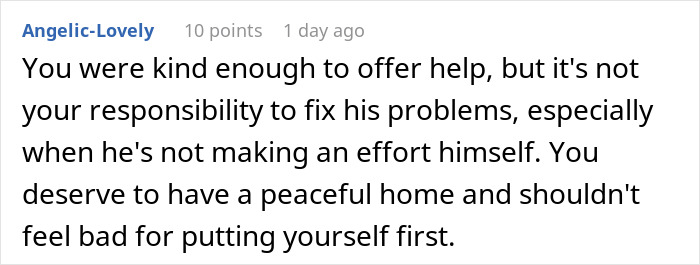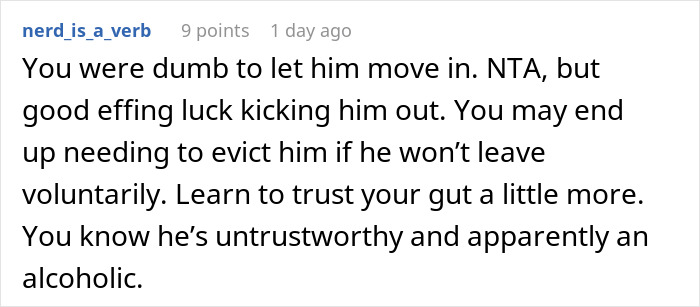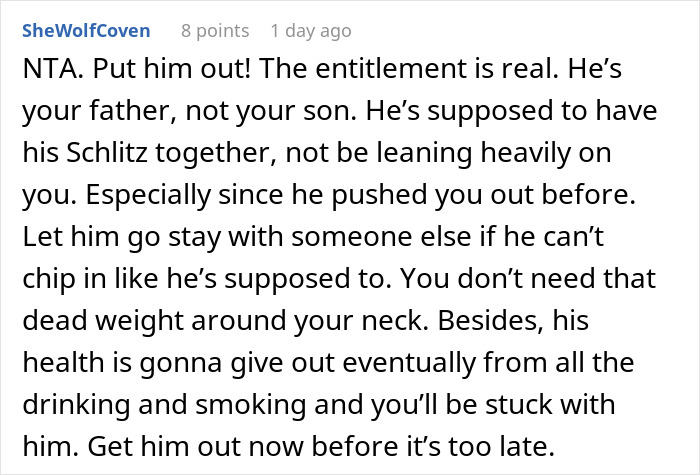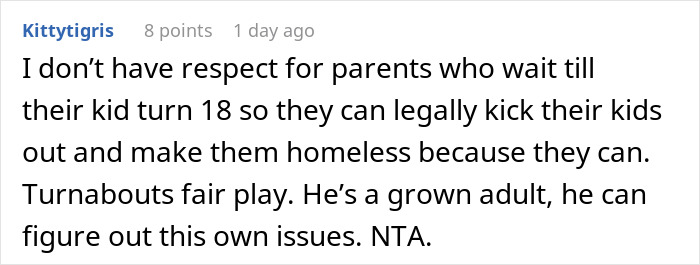It’s no secret that family relationships can be quite complicated. In many households, family members are the ones people love most, but they can also be the ones to hurt them the most, too. But even then, some people choose not to turn a blind eye to family when times get rough.
Take this redditor’s story, for instance; despite being pushed out of his dad’s house at 18 years old, the OP decided to let his father into his home when the latter was in trouble. However, the son did set some rules and boundaries, which they both agreed to, and which the dad didn’t take long to break.
Scroll down to find the full story below, where you will also find Bored Panda’s interview with a licensed marriage and family therapist, Angela Sitka, who was kind enough to answer a few of our questions on family relationships.
Some people lend a helping hand to family members in need, no matter how good or bad their relationship is

Image credits: cottonbro studio / pexels (not the actual photo)
This man took his father into his house, but the dad didn’t show much respect to his kindhearted son

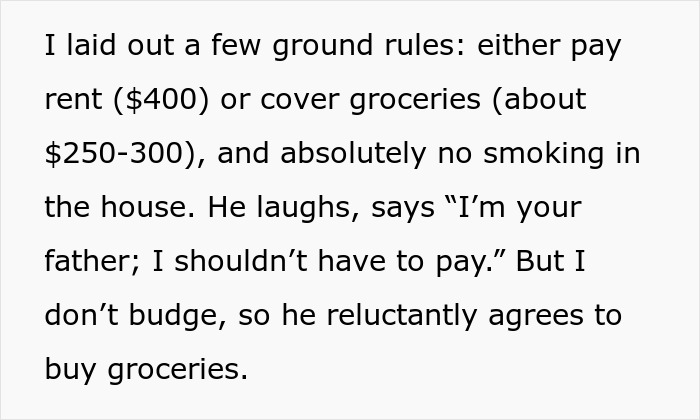

Image credits: SHVETS production / pexels (not the actual photo)
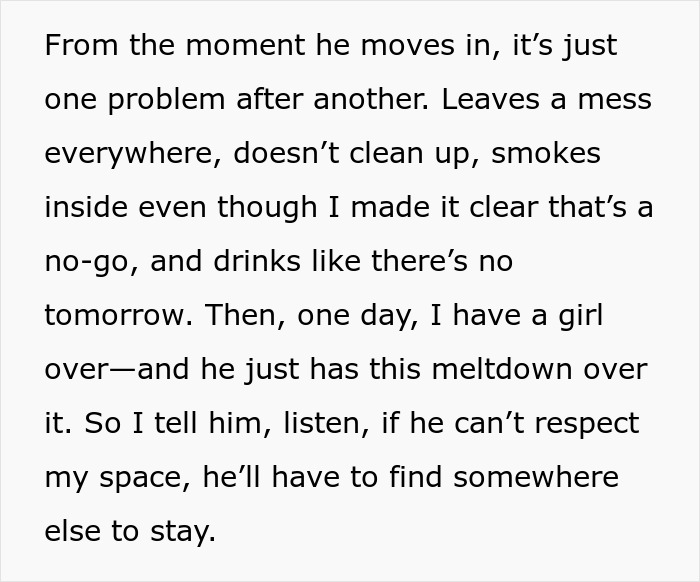
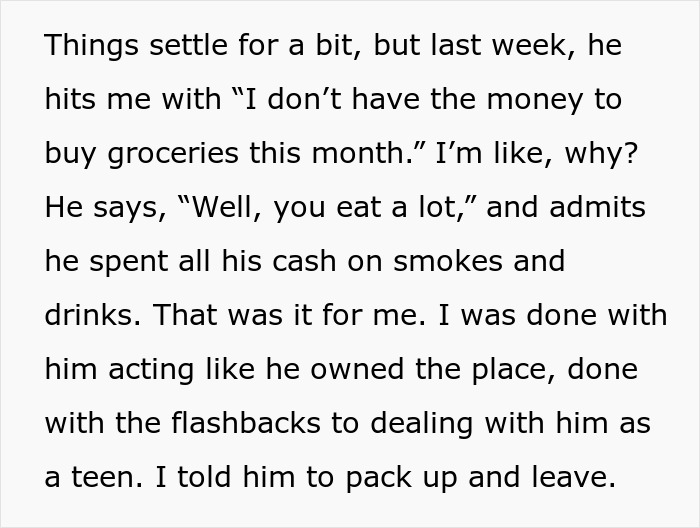

The son added an edit, providing more information on the situation

Image credits: Ron Lach / pexels (not the actual photo)
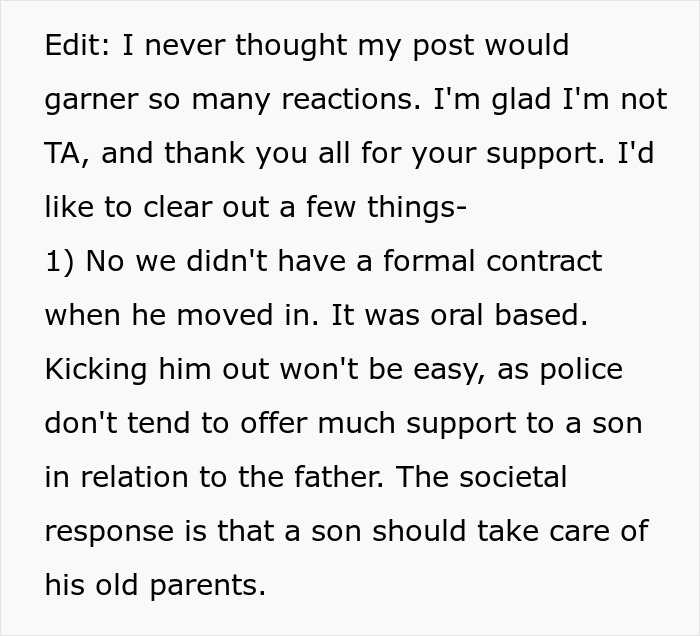


Image credits: Lanky-Ad2666
Having a parent move in can bring certain emotions from the past
Discussing parent-child relationships with Bored Panda, the licensed marriage and family therapist Angela Sitka pointed out that these relationships are different from any other type of relationships we build in our lives.
“We can feel some of our deepest connections with our parents but can also be triggered and emotionally dysregulated by our parents to a high degree as well,” she noted. “Parental relationships are deeply intertwined in how we see ourselves, and how we form our self-identity from a very early age. So, when we feel we are being disrespected, demeaned, taken advantage of, or misunderstood by our parents, our flight or fight system can get activated, especially if there is a history of past trauma, abuse or neglect from a parent. When this trauma response gets activated, it can make problem-solving, navigating decision-making, and effectively communicating difficult.
“Understandably, we want to support parents in times of need, but having a parent live with us increases the opportunities of these old dynamics coming into play again, and becoming activated and triggered by our interactions with a parent which can deteriorate an already tenuous type of relationship,” Sitka explained.
While nowadays the trend seems to be young adults moving back in with their parents, the OP’s father is arguably far from the only parent having moved in with their adult child. According to the Pew Research Center, today, roughly 14% of adults living in someone else’s household are a parent of the head of the household (which marks a 7% increase from 1995).

Image credits: Kindel Media / pexels (not the actual photo)
It’s not uncommon for elderly parents to move in with their adult children
In some places of the world, it’s not uncommon for elderly parents to move back in with their children, so the latter can provide the care they need. While it’s not a custom equally popular everywhere, in his post, the OP pointed out that there is this societal response that a child should take care of their old parents.
“In some cultures, societies, and communities, there can be norms around the care-taking of parents. If we choose to do something outside of this norm, even if it’s a decision made intentionally and with much consideration, we might find ourselves feeling guilty, selfish, or ashamed. We might fear the judgment of others within our communities and social circles,” Sitka noted.
Be that as it may, no one knows exactly what the family dynamics are, except for its members, which is why it might be necessary to set certain boundaries instead of giving in to certain pressures.
“Family systems theory posits that families are always moving towards maintaining an equilibrium within the relationships between family members and therefore resist change. That’s why it can sometimes feel like we get placed into a family role that we can’t seem to get out of (the baby, the troublemaker, the caretaker, the fixer, the scapegoat, and so on) and when we do try to change, we often get pushback from other members of the family,” the family therapist suggested.
“Boundaries give our family members in this system a roadmap of how we want to be treated,” Sitka added. “We remind people of this roadmap through our consistent and unwavering actions that demonstrate an expectation for mutually respectful interactions. It might not change your family members’ poor behavior, but it can boost our self-respect: that we are trustworthy in caring for our own needs while interacting in our relationships.”
The OP was pretty clear about his boundaries and the rules the dad ought to follow if he wanted to live under his roof. Unfortunately, the father didn’t care much for the boundaries, nor for the rules, leaving his son with no other option but to kick the parent out of his house.

Image credits: RDNE Stock project / pexels (not the actual photo)
The OP replied to some of the netizens’ comments
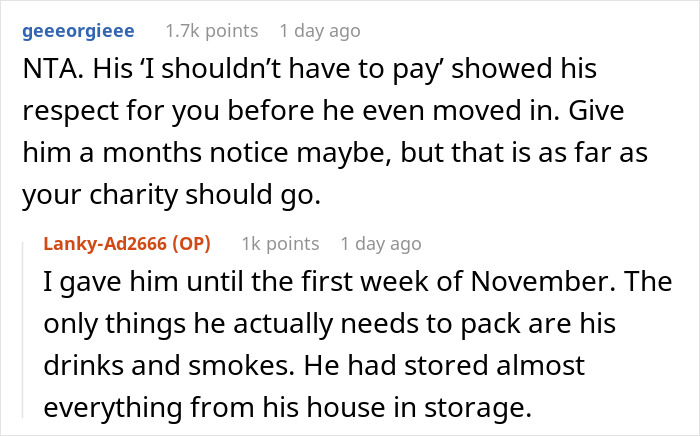
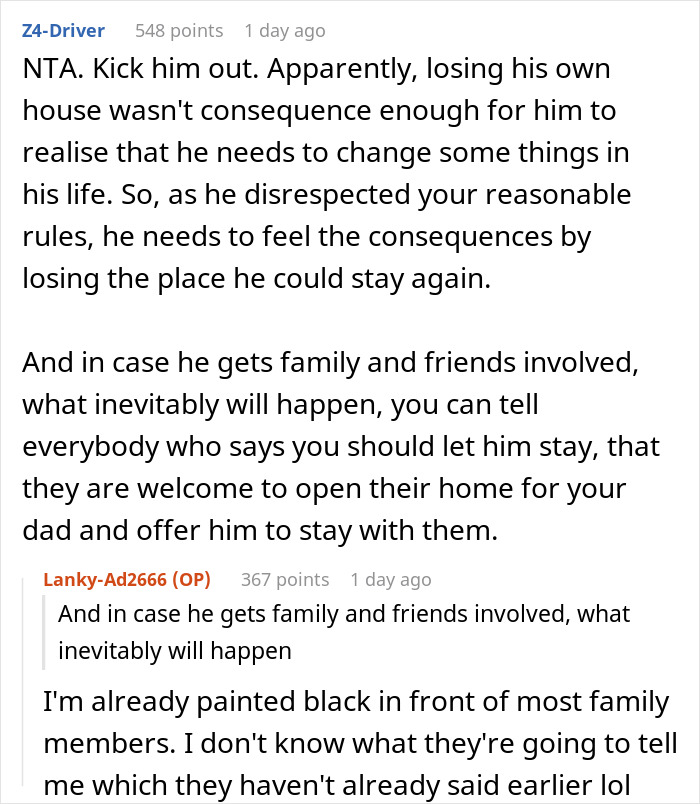
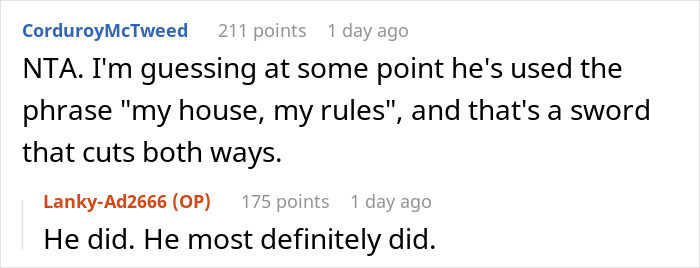
Fellow redditors didn’t think the son was a jerk to his father

